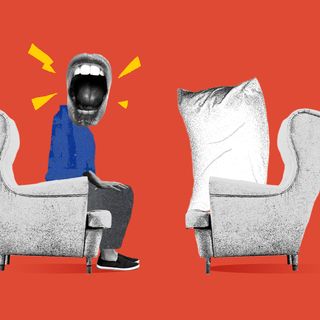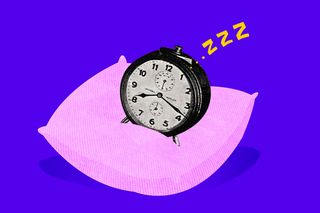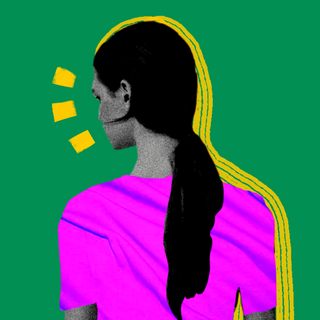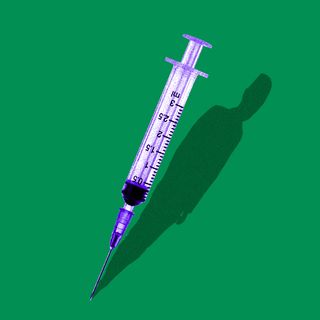
How Much Sleep Do We Really Need?
Dr. Google might not know the exact amount of sleep each person needs, but our own bodies can help us find out if we’re sleeping enough.

Sleep is the new health and wellness frontier driving much discourse and consumption. Increased health consciousness among people in the post-pandemic world, coupled with a rise in the sale of smartwatches in recent years, has pushed people to track their sleep — sometimes, even obsessively. Suddenly, there has been a surge in people wanting to figure out the different stages of sleep, the perfect amount of sleep they need, and that perfect deep sleep-to-light sleep ratio they must achieve to live the longest. “I’m making house calls for the first time,” Dr. Rafael Pelayo, a sleep specialist, said in October 2020. Perhaps, the curiosity has also been boosted by the collective sleeplessness prevalent among people today — which some have linked to society’s idolization of hustle culture.
India is one of the most sleep-deprived countries in the world, according to a 2019 study. Other reports suggesting that India’s sleep deprivation “epidemic” may have gone further downhill since the pandemic struck. And it’s not just Indians, “Pandemic-induced or not, the consequences of lost sleep are universal and readily apparent in the country’s diminished productivity, in the rates of stroke, heart attacks, and car accidents, and in the pervasive irritable mood many can’t seem to escape,” a recent article by Stanford Engineering states.
Whatever the reason, how much sleep we need every night has become a million-dollar question. The short answer is: there isn’t one answer for everyone; it depends from person to person.
The oft-touted solution is to sleep well. But, “well,” here, is subjective. There’s no one-size-fits-all formula when it comes to the right amount of sleep people need. For adults and young adults, the sweet spot lies somewhere in the realm between seven and nine hours. But for older adults, the ideal is between seven and eight hours. Still, the “right amount” varies over the years — from infancy to childhood to adolescence — and it steadily dips from a point between 14 and 17 hours, which a newborn baby needs. It turns out, however, that these ideal ranges only consider “healthy individuals with normal sleep.” But how many of us are sure we’re at the pinnacle of “health,” and can say with certainty that our sleep is “normal”? As such, attempting to deduce that perfect amount becomes an exercise in conjecture.
The perception of there being a universal, ideal duration of sleep for everyone, drives dangerous dangerous myths surrounding sleep — of which there are many — flourish. From believing drinking alcohol ensures better sleep (it doesn’t) or trusting that we’ve slept well simply because we can remember our dreams, there are lores galore. And so, it becomes even more important to tread carefully when it comes to sleep research.
Related on The Swaddle:
How Sleeping Next to Our Partners Can Improve Our Health and Wellbeing
“If you ask Dr. Google [how much sleep is ideal], you’ll get over a billion answers… The most common [one] seems to be ‘eight hours.’ [B]ut where does this number come from? And if you’re thinking, ‘Dr. Google hasn’t examined me; how would she know how much sleep I need,’ then you’re asking exactly the right question,” notes an article by Scientific American. “How much sleep we need depends on how we are biologically hardwired and on our body’s current needs… Not only do healthy sleepers differ from each other in how much sleep they need, but healthy sleepers also change their sleep needs over time.”
Changes in one’s working hours, eating habits, and basically, just aging, too, can trigger changes in people’s sleep schedules and durations. Say, if one decides to move their bedtime up from 11 p.m. to 9:30 p.m. because their new job requires them to report to work early, their bodies will take sometime — say upto five days — to adjust to the new schedule. As they age, their sleep duration will also adjust automatically to their body’s needs. What we can’t train our bodies to do, though, is adjust to a chronically restricted amount of sleep without having it impact our health in one way or another.
The internet might not know the exact amount of sleep each person needs — well, not yet. Our own bodies can, however, help us find out whether we are sleeping enough and, eventually, “hone in on [o]ur optimal amount of sleep.” Instead of relying on external wisdom, experts believe we try to figure out what is the amount of sleep that helps us feel the most productive, healthy, and happy. People who struggle with interoception — or the perception of sensations from inside the body, like thirst, hunger, or satiety, the sensation of breathing, feeling hot, cold, or itchy, or sensing one’s own heartbeat — might find it challenging to draw these inferences. There’s no hard and fast solution for those with poor interception, unfortunately. But if one is feeling chronically exhausted and rarely alert, perhaps, seeing a sleep specialist might be a good idea. Consistent dark circles could also point to one’s sleep being inadequate.
But there are other ways of finding out. Experts also recommend trying to determine whether we feel adequately alert on the amount of sleep we’re used to having, or if we feel exhausted easily and need to rely on caffeine, among other things, to help us get through the day. If we have health issues that require us to rest often, or if our work is labor-intensive, we may need more sleep than a peer who doesn’t live with those intervening factors.
Related on The Swaddle:
White Noise Doesn’t Necessarily Aid a Good Night’s Sleep, Says Study
New trends attempt to optimize sleep in ways that minimize time spent on sleeping whilst also maximizing productivity. Sleep hacks are a growing wellness trend that try to “hack” a person’s biological needs when it comes to sleep — but this, experts argue, is counterproductive. Our sleep-wake cycles are regulated by something called the circadian rhythm — our bodies’ natural, internal clocks. Differences in circadian rhythms determine our chronotype — whether we’re ‘morning larks’ or ‘night owls.’ A person’s chronotype is the likelihood of a person to sleep at a particular time during the 24 hours, and it also has a bearing on their productivity — ‘night owls’ tend to have poorer attention spans, slower reactions, and drowsiness for a greater part of their work-days, research shows, suggesting that 40% of human beings fall in this category.
“Some people think they are adapting to being awake more, but are actually performing at a lower level. They don’t realize it because the functional decline happens so gradually,” explains Cynthia LaJambe, a sleep expert at the Pennsylvania Transportation Institute in Wingate. “In the end, there is no denying the effects of sleep deprivation. And training the body to sleep less is not a viable option.”
Reportedly, one’s chronotype can undergo slight shifts based on one’s age, resulting in variations in sleep patterns as people grow up; while children and older people are believed to prefer mornings, adolescents and young adults may prefer evenings. Moreover, since chronotypes exist on a spectrum and are increasingly varying, people may exist outside the dichotomy of ‘lark’-ness and ‘owl’-ness too. Someone may be most productive at twilight or the afternoon, or someone who was formerly a ‘night owl’ may now be an ‘early riser’.
Cutting down sleeping hours to the point of sleep deprivation in a bid to boost productivity, then, can affect a person’s health — elevating the threat of depression, diabetes, kidney and heart disease, increased blood pressure, obesity, impaired memory, and the risk of injury. Different brain regions “need to be well-connected in order to effectively generate and adjust our emotional responses. This is where sleep comes in. When we’re sleep-deprived, the connections between these areas weaken… If you’re well-rested, you are more likely to be able to effectively problem solve,” Joanne Bower, a lecturer in psychology at the University of East Anglia, wrote in The Economic Times.
But, unfortunately, the rising temperatures around the world are causing people to sleep less, research shows. Yet another thing getting in the way of a full night’s sleep for many of us is revenge bedtime procrastination — derived from the Chinese expression “bàofùxìng áoyè” — which refers to a conscious or subconscious decision that people in high-stress, time-consuming jobs often find themselves making, simply to sneak in a few hours of “me” time that their responsibilities didn’t permit them to include in the course of the day.
Getting waylaid on the path to securing a good night’s sleep is easy. But the temptation isn’t really worth it. “Sleep is essential for all aspects of our physical, mental, and emotional lives,” advises Eti Ben Simon, a sleep researcher at the Center for Human Sleep Science in Berkeley. “When sleep is undervalued in society, not only do we get sleep-deprived doctors, nurses, and students, but we also suffer from unkind and less empathic interactions on a daily basis. It is time as a society to abandon the idea that sleep is unnecessary, or a waste and, without feeling embarrassed, start getting the sleep that we need. It is the best form of kindness we can offer ourselves, as well as the people around us.”
Devrupa Rakshit is an Associate Editor at The Swaddle. She is a lawyer by education, a poet by accident, a painter by shaukh, and autistic by birth. You can find her on Instagram @devruparakshit.
Related


Can You Have a Migraine Without a Headache? All You Need to Know About ‘Silent Migraines’
